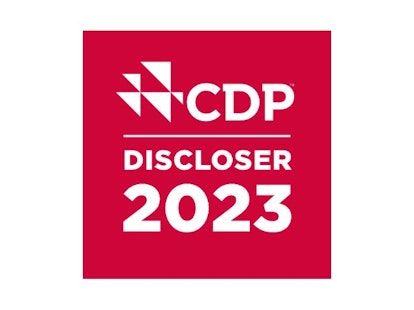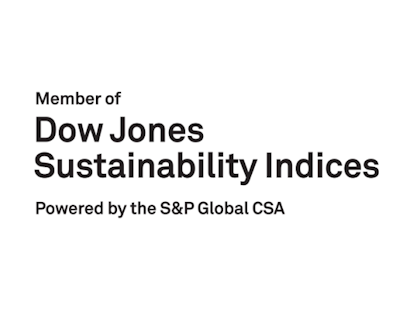Equal weighting needed
Environmental, Social and Governance (ESG) materiality is now completely intertwined with its financial counterpart and no less important. Negative ESG-related actions harm performance and financial condition.
Defining Sustainability Report Assurance
Sustainability Report Assurance (SRA) is an evaluation of ESG factors in a company’s policies and practices, providing a thorough picture of company behavior. It ensures that the company’s sustainability report meets certain standards.
This non-financial report assurance is vital because it provides powerful peace of mind to investors that a company’s claims and disclosures are fair, accurate and verified. It also confirms investors’ views that the conversation has moved from “a company doesn’t have data or has unreliable data” to “its data might be imperfect, but it is assured by a reliable source” – often an independent assurance provider.
Why SRA?
In an ever-changing ESG landscape, which includes fresh legislation, such as the EU’s Corporate Sustainability Reporting Directive (CSRD), SRA is becoming even more important.
International Federation of Accountants (IFAC) figures from June 2021 show that 91% of organizations report some form of sustainability information. However, to be effective in terms of investor engagement, this information must come with assurance, and only 51% of these organizations provided this. Of this 51%, only 63% were conducted by an auditing company or affiliate. The majority – 88% – of the reports with assurance were limited, with assurance only related to defined facets (e.g. emissions) of the sustainability report.
Assurance should be classed as a bottom-up initiative that provides a solid and rigorous foundation for ESG, one that ultimately enhances reports and, thus, a company’s attractiveness to investors. It can also support a shift from simple reporting, born out of regulatory necessity and KPIs, to strategic reporting that is more potent and forward-looking. Simply, investors are increasingly looking for assurance to clarify a company’s ESG output. Without it, companies are not so attractive to investors of all kinds.
Overall benefits include:
- Increased trust in sustainability reports
- Improved identification, analysis and risk management processes
- If tied to lending or financing, reduced cost of capital
- Enhanced reputation among stakeholders
- Improved brand value, avoiding accusations of greenwashing, especially as SRA is accompanied by external verification or second-party opinions (SPO)
- Avoided use of costly resources to create internal guidelines for reporting according to international standards
- Meeting requirements determined by regulation, government or stock exchange rules, reducing legal risk
Currently, the dominant assurance standards are:
- AccountAbility’s AA1000 Assurance Standard
- The International Standard on Assurance Engagements 3000 (ISAE 3000)
The benefits depend on the system of assurance.
AA1000 in detail
Adopting AA1000 avoids the need to expend resources on creating tailored guidelines. The flexibility built into its framework enables it to be adopted by businesses of all sizes and industries – its scope can be customized to the company’s needs.
AA1000 was founded on:
- Inclusivity – people should have a say on the decisions that impact them
- Materiality – decision-makers should identify and be clear about the sustainability topics that matter
- Responsiveness – companies should act transparently on material sustainability topics and their related impacts
- Impact – companies should monitor, measure and be accountable for how their actions affect their broader ecosystems
AA1000 emphasizes the need for organizations to engage effectively with stakeholders, identify material sustainability issues and demonstrate the existence of a responsible business strategy.
SGS can support any organization through the process, helping it to enhance trust, reputation, stakeholder attraction and, when tied to financial lending, reduce capital costs.
More than mere certification – assurance can strengthen internal controls
ESG and SRA inevitably lead to the question of resources, budgets and deployment. But what else should be considered?
Firstly, companies must explore the benefits of ESG and SRA before going through the process, not just afterward, and recognize that the two should be cultivated internally, across the organization.
Secondly, everyone can play their part, to a degree, in cultivating ESG and SRA internally. Upskilling the organization is unavoidable and leads to staff asking the right non-financial questions and gaining relevant knowledge. Training, especially external and independent, will also empower this. Asking the right questions of internal controls is vital to ensuring that controls material to the risks are in place.
Finally, in many companies, ESG and SRA sit with procurement, with the focus more on logistics and costs, rather than necessity and value. Drivers for this accountability should come from the top.
Even for organizations still at an early stage of their ESG journey, some assurance is better than no assurance. SRA is a platform that can help an organization get to grips with information and disclosures. Having external, independent experts involved will simplify the process and enhance any disclosed data. These experts will look to fully understand a company, collaborate and help the process, including internalization. This assistance will help the company improve the scrutinizing of reports, ensuring relevance, completeness and the scope of ESG data.
With ever-evolving regulations, an assurance partner will provide the expert advice needed to underpin the latest sustainability reporting alignment, as ESG and SRA become more familiar and less complicated. In short, the journey toward credible, complete and comparable data becomes smoother.
Initiatives moving the conversation on
COP27 showed that a lot can happen in ESG in just 12 months. A year since the International Sustainability Standards Board (ISSB) was established at COP26, its board is now fully operational and committed to issuing its first two standards for adoption in 2023. This means the ISSB can provide global financial markets with high-quality disclosures, starting with climate.
To help shape the future, climate data project Net-Zero Data Public Utility (NZDPU), backed by the Glasgow Financial Alliance for Net Zero (GFANZ), wants financial institutions and auditors worldwide to provide corporate climate data. Potential participants, including banks, asset owners and managers, brokerage firms and auditing and verification providers, can provide feedback on topics such as disclosure incentives, interoperability of global disclosure standards, proof of assurance and associated standards and product stability.
With this heightened focus on reporting and disclosure, robust and credible ESG practices are essential to enhance trust and company attractiveness to stakeholders. A company that can demonstrate independently assured excellence in ESG management can benefit from reduced capital costs. As the landscape continues to evolve at a rapid pace, there has never been a more important time to put ESG front and center of corporate strategy.
Follow the leader
SGS has been a leader in sustainability and ESG for over 30 years, launching the world’s first environmental management certification – the Green Dove Award – in the early 1990s.
As the world, markets and businesses evolve, so does SGS’s comprehensive ESG portfolio, which can support any organization, wherever it is on its ESG journey.
SGS can support reporting through:
- Opinions on how to manage ESG
- Independent assurance of ESG metrics and targets
- Data management processes and systems, including internal controls evaluation
- Verifying data and reporting non-financial information against international standards
- Recommending improvements to reporting and disclosures
The scope has three options for verification:
- Whole report
- Part of the report or selected KPIs
- Against a framework/standard, including AA1000, the Global Reporting Initiative (GRI), Sustainability Accounting Standards Board (SASB) and Task Force on Climate-related Financial Disclosures (TCFD)
Discover our Disclosures and Sustainability Report Assurance services.
For further information, please contact:
Simon Colton
Business Development Director
SGS Sustainability Solutions
t: +31 653 359 560
About SGS
We are SGS – the world’s leading testing, inspection and certification company. We are recognized as the global benchmark for quality and integrity. Our 96,000 employees operate a network of 2,700 offices and laboratories, working together to enable a better, safer and more interconnected world.
Related Links
- Knowledge Solutions
- ESG - Environmental, Social and Governance
- Sustainability Solutions



